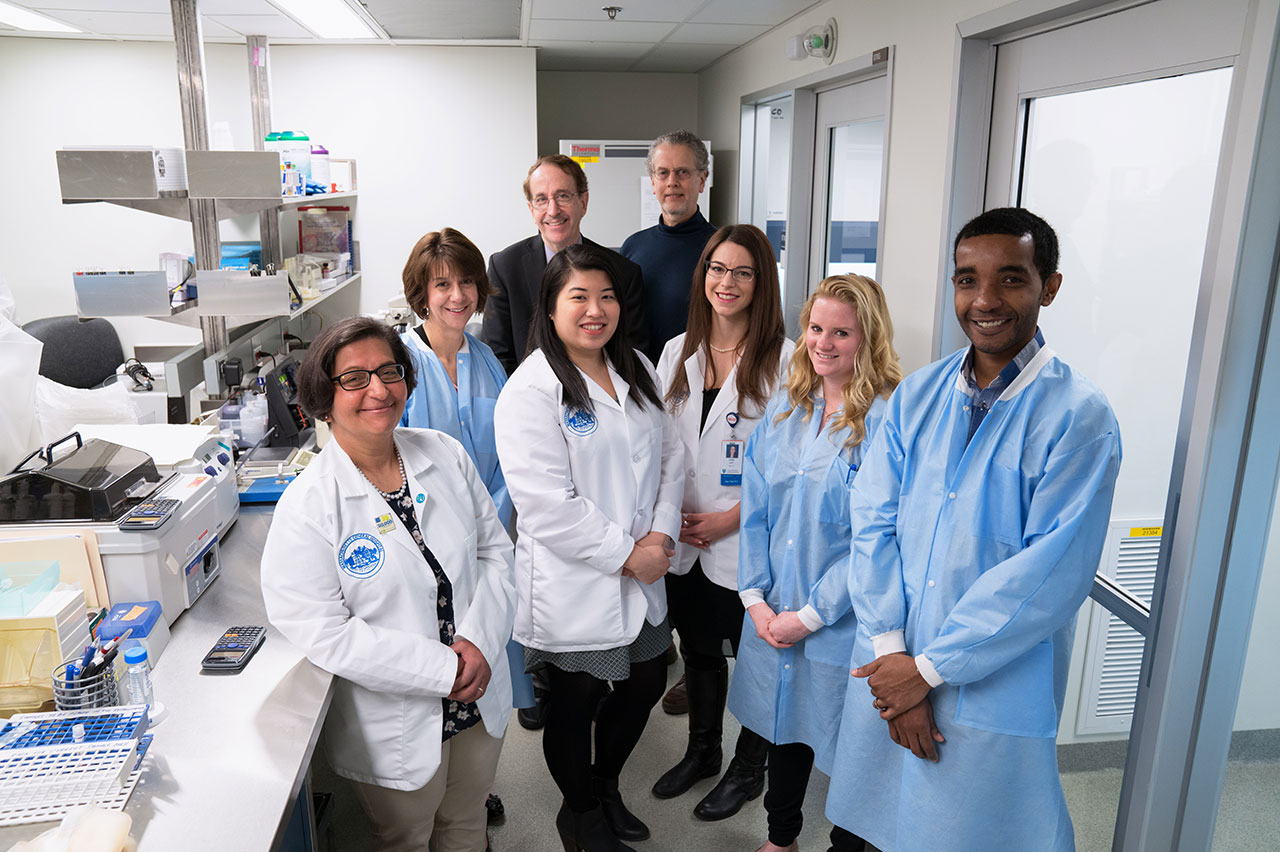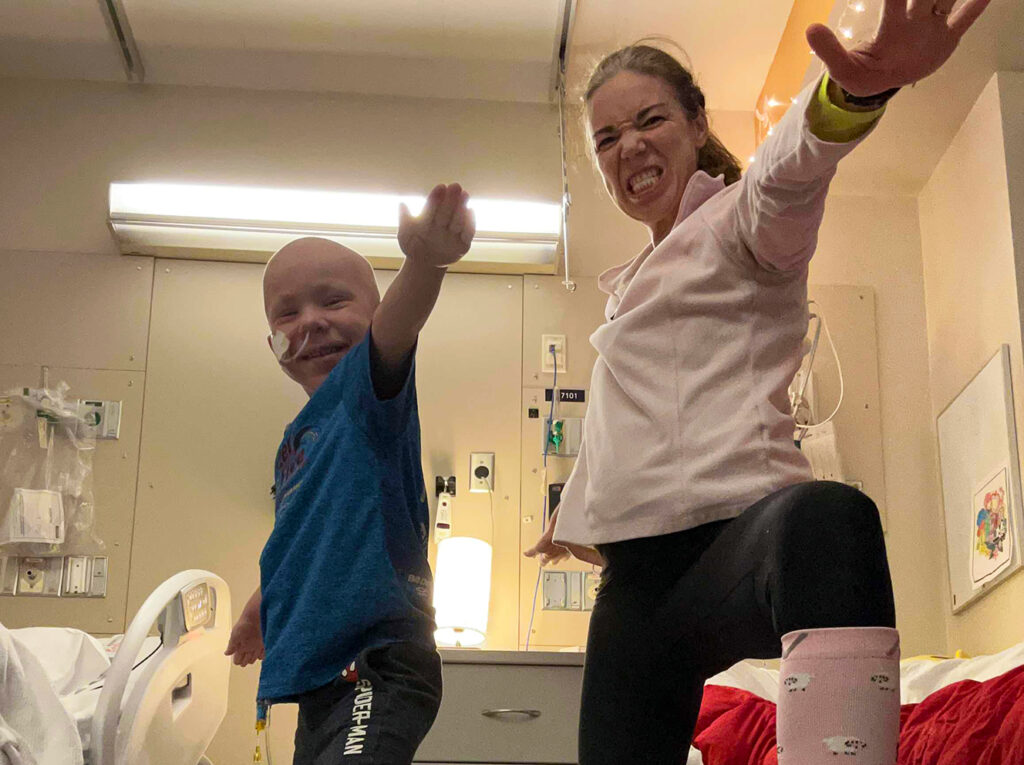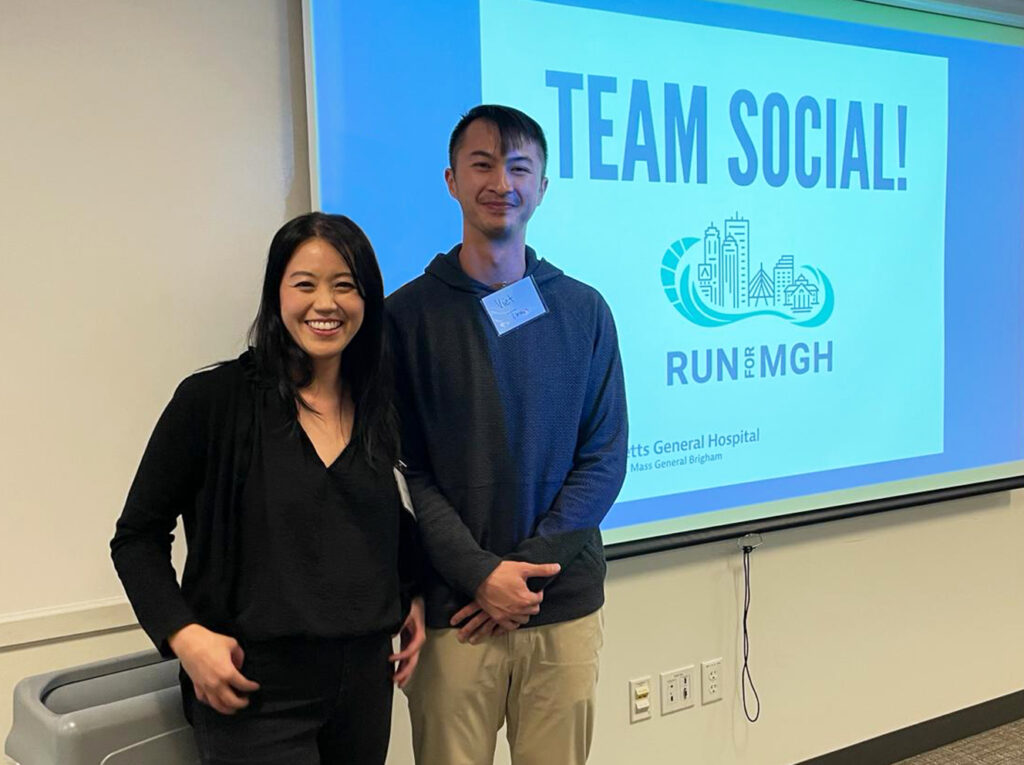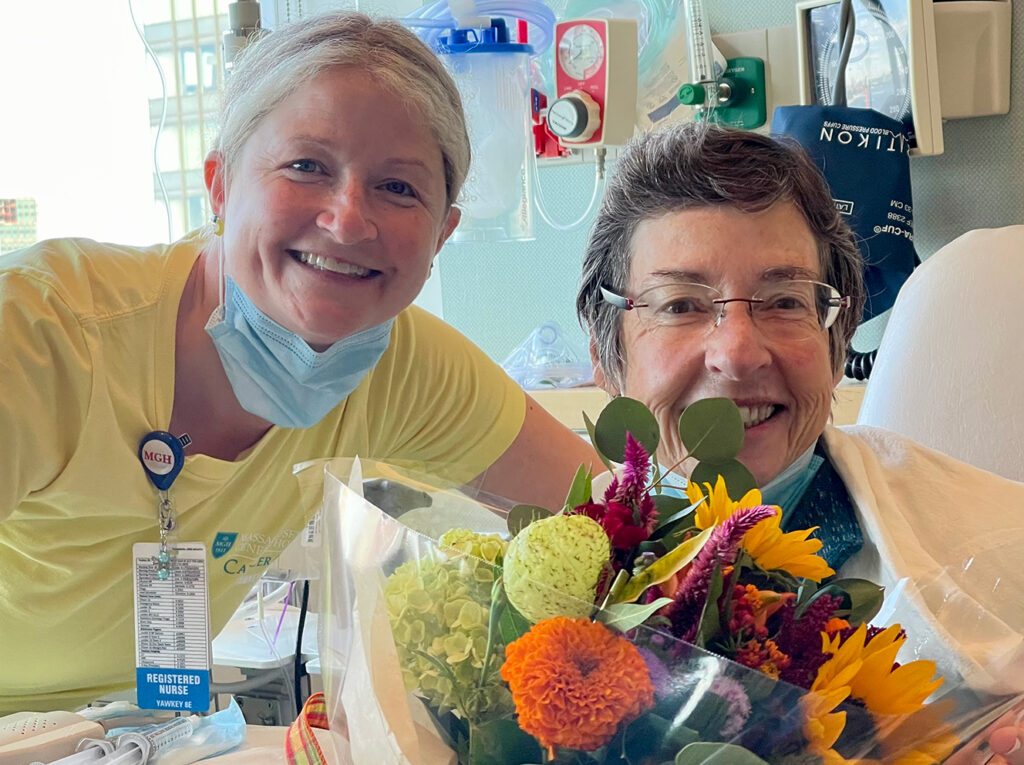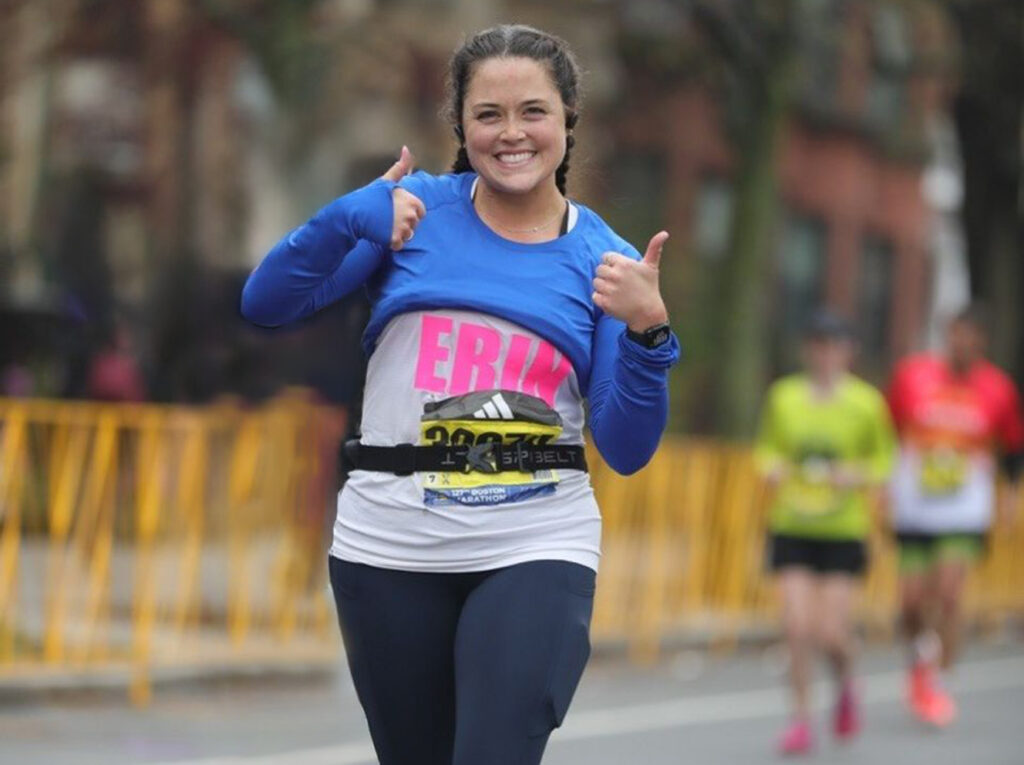The Mass General Cancer Center’s Cellular Therapeutics and Transplantation Laboratory (CTTL) is comprised of a team of medical technologists that provide support to the Bone Marrow Transplant Program. These technologists play an integral part in stem cell processing, transplant infusions and bone marrow harvests. Technologists also participate in numerous immunotherapy clinical trials to aid in the progression of research and improve patients’ lives.
The Bone Marrow Transplant Program was founded by CTTL Medical Director Thomas Spitzer, MD, in 1992. In 1993, the laboratory supported 15 transplants. Since then, more than 2500 transplants have been performed at Mass General including more than 200 transplants in 2016. All cellular products are processed by the lab’s technologists prior to infusion. Technologists handle products ranging from autologous stem cells to allogeneic stem cells, assist with bone marrow collections, and process and assist in the infusion of cord blood cells. Depending on the compatibility of the product to the recipient, the technologist may perform lengthy processing procedures prior to infusion.
As a collection and transplant center for the National Bone Marrow Donor Program, the laboratory also processes cellular products for other transplant centers. Through this program, donors in the area are able to donate stem cells or bone marrow for patients across the world, saving many lives.
The laboratory plays a critical role in clinical trials undertaken by the Bone Marrow Transplant Program. All trials requiring the collection and manipulation of cells are facilitated by the technologists.
The staff of the CTTL is dedicated to enabling life saving transplants for patients with life threatening hematologic malignancies and other blood disorders. “The CTTL has a passion for moving the field forward for stem cell therapy,” says one nominator. “Clinicians, donors, patients and other laboratories have all been affected by their great work.”


